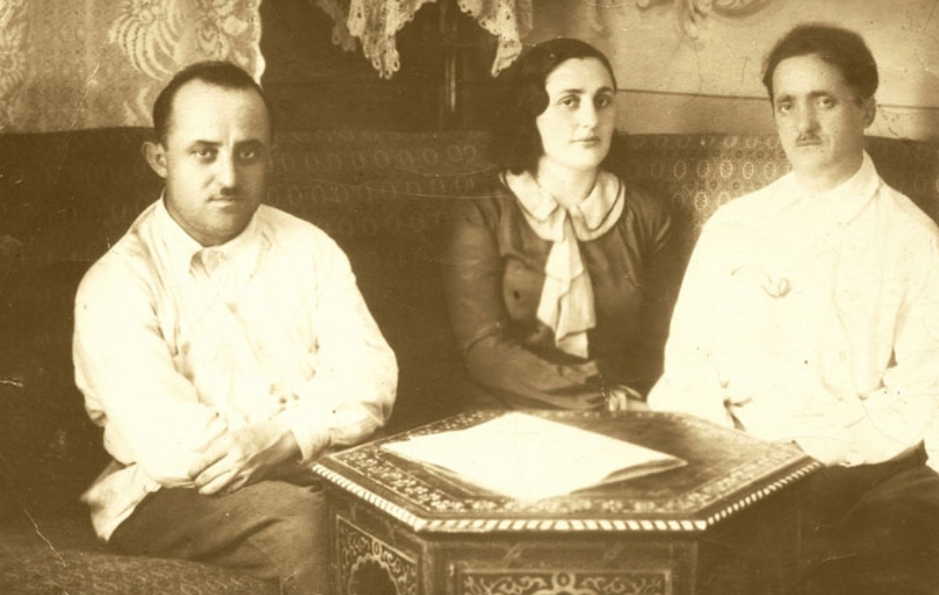Marking a Somber Date: The Anniversary of Nestor Lakoba's Death

Nestor Lakoba; 1 May 1893 – 28 December 1936, was an Abkhaz Communist leader.
SUKHUM / AQW'A ― Today marks the anniversary of the death of Nestor Lakoba (1 May 1893 - 28 December 1936), a seminal figure in the history of Abkhazia and a prominent Communist leader. Lakoba's life, steeped in political intrigue and struggle, tragically ended when he was poisoned by Lavrenti Beria, then head of the NKVD, the infamous Soviet security organisation.
Nestor Lakoba played a pivotal role in the Bolshevik establishment in Abkhazia following the Russian Revolution. After Abkhazia's integration into the Soviet Union in 1921, he became the head of the newly incorporated territory. His tenure as Chairman of People's Commissars (1922-1930) and Chairman of the Central Executive Committee (1930-1936) saw him emerge as a formidable and unchallenged leader, maintaining a crucial political distance in relations with Georgia, much to Tbilisi's chagrin.
Lakoba's leadership was defined by his resistance to the Menshevik Georgian forces supported by German bayonets. He led the national liberation struggle of the Abkhaz people, forming the peasant army-militia "Kiaraz." Historian Igor Marykhuba praised Lakoba as the "Danton of the Abkhaz revolution," crediting him and the "Kiaraz" fighters with saving Abkhazia during its bloodiest years from 1918 to 1921.
+ Stanislav Lakoba: “Thousands of people’s destinies in Abkhazia were crushed”
+ Celebrating a freedom fighter on his 130th birthday: The challenging path of Nestor Lakoba
+ The Stalin-Beria Terror in Abkhazia, 1936-1953, by Stephen D. Shenfield
Lakoba's popularity and influence, however, made him a target. Many historians agree that Joseph Stalin had already marked Lakoba for elimination by early 1935. His death not only left a void in Abkhazian politics but also led to a vilification campaign by Beria, falsely branding him an 'enemy of the people.' This slander extended to other notable figures in Abkhazia, including party secretary Vladimir Ladaria and writer Samson Chanba.

Nestor Lakoba (right) with his wife, Saria Lakoba (1904-1939).
The doctors who autopsied the victim were arrested. A month later Lakoba's tomb was flattened and the body exhumed. Lakoba was de-clared an enemy of the people: Sark., his widow, was charged with plotting to kill Stalin with the pistol Allilueva had given her and tortured for two years until she died. Lakoba's mother was bludgeoned to death by Beria's hangman Razhden Gangia. Beria slaughtered almost the entire Lakoba clan, keeping the children in prison until they were old enough to execute. Lakoba's young son Rauf was tortured in Moscow by the notorious Khvat, sentenced to death by Ulrikh and shot in 1941. One brother-in-law and two nieces survived. Most of the Abkhaz intelligentsia perished: Georgians and Mingrelians colonized southern Abkhazia. Beria's revenge was directly sanctioned by Stalin without Ezhov's signature. After Lakoba's murder Stalin stayed away from the Caucasus for nine years.
― 'Stalin and His Hangmen' by Donald Rayfield
The funeral of Nestor Lakoba | Sukhum January 1, 1937
In his works, historian Igor Marykhuba described Lakoba as an outstanding socio-political figure in 20th-century Abkhazia, a sentiment echoed in the accolades he received during his lifetime. His legacy and the foundations he laid down were later built upon by Vladislav Ardzinba, the architect of modern Abkhaz statehood.
Lakoba's untimely demise at the hands of Beria marked a dark chapter in the history of Abkhazia, altering its political landscape and leaving a legacy that continues to resonate in the region's collective memory. Today, we remember Nestor Lakoba not just as a victim of political machinations but as a visionary leader whose impact on Abkhazia's history remains indelible.